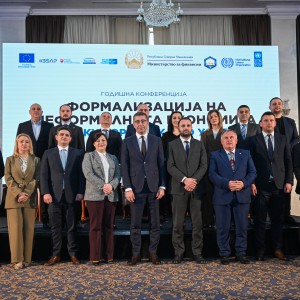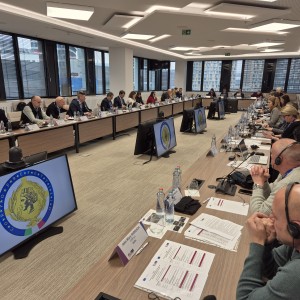News
23 September 2022 |News
RCC ESAP 2 Supports Dialogue on Employment of Foreign Workers in Bosnia and Herzegovina
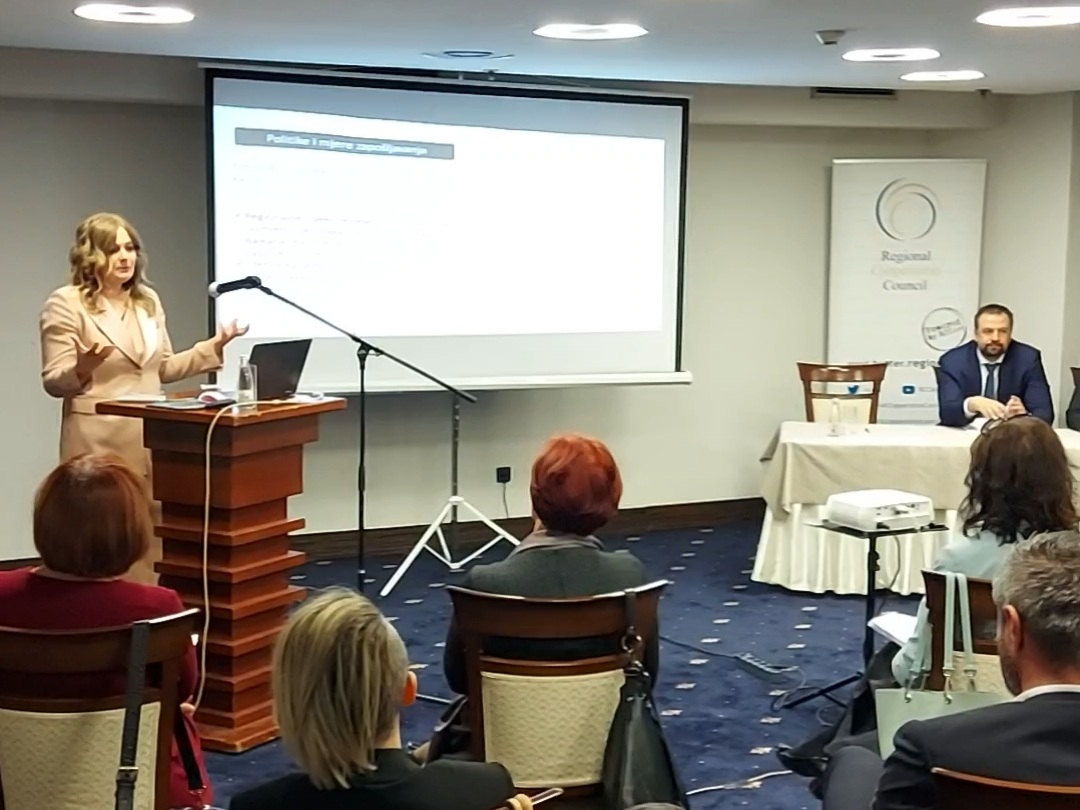
Amira Ramhorst, RCC ESAP Team Leader addressing Conference "Employment of foreign workers – perspectives and opportunities”, held in Sarajevo, Bosnia and Herzegovina on 23 September 2022 (Photo: RCC ESAP 2)
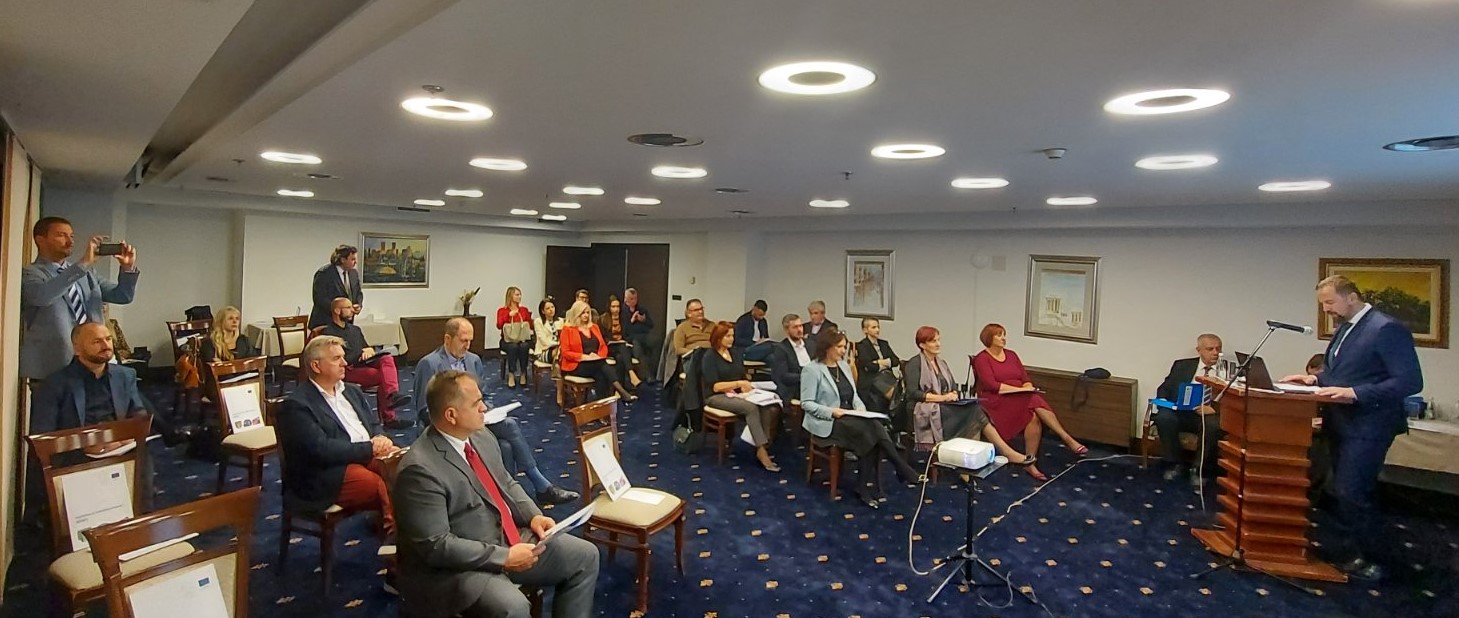
Director of Labour and Employment Agency of Bosnia and Herzegovina, Muamer Bandic, presenting key labour market challenges at a Conference dedicated to employment of foreign workers, in Sarajevo on 23 September 2022 (Photo: RCC ESAP 2)
ESAP 2 project provided support for organizing the Conference “Employment of foreign workers – perspectives and opportunities”, co-organized with the Labour and Employment Agency of Bosnia and Herzegovina
Sarajevo - Conference “Employment of foreign workers – perspectives and opportunities”, organized by the Labour and Employment Agency of Bosnia and Herzegovina (LEA BIH) with the support of the Regional Cooperation Council’s (RCC) Employment and Social Affairs Platform 2 (ESAP 2) project, was held in Sarajevo, Bosnia and Herzegovina (BiH) on 23 September 2022.
The event that gathered representatives from the BiH Ministry of Civil Affairs, the employers’ associations active in Bosnia and Herzegovina, Public Employment Services (PESs) in BiH, focused on the topic of engagement of foreign citizens in BiH labour market, analyzing the existing legal framework and data related to foreign workers permits, overall labour market demand and supply, employers’ needs for labour in specific occupations, the role of PESs and the Labour and Employment Agency and other government institutions in the process related to permits for hiring of foreign workers.
Amira Ramhorst, RCC ESAP 2 Team Leader in her opening remarks at the Conference said: ”We’re glad to have had this opportunity to support LEA BiH and in this way and respond to the request for structured dialogue with employers pertaining to this very relevant, but also sensitive topic for the BiH labour market . At this Conference, we will have an opportunity to hear employers, PES and other institutions in BiH dealing with employment of foreign workers, thus enhancing structured dialogue and on such an important topic.” Finally, ESAP 2 Team Leader highlighted that comprehensive labour market analytics to identify professions in deficit in Bosnia and Herzegovina are important, sharing some of the data hubs hosted by ESAP.
Muamer Bandic, Director of LEA BiH highlighted different challenges that the BiH labour market is facing when it comes to employment of foreign workers underlining employers’ need for employment of specific professionals not available at the demanded rate in the economy, outflow of domestic labour and negative democratic trends.
Participating representatives of the employers’ associations stressed labour shortages in some occupations and their unsatisfied demand for additional workers in specific occupations mostly in construction, certain production/processing sectors and the hospitality industry, proposing for liberalization of existing legal solutions related to hiring of foreign workers.
Exchanges among all institutions present focused on the need for labour market analytics to identify professions in deficit in Bosnia and Herzegovina, modelled on similar EU practices and the need for a systemic approach and partnerships with employers related to reskilling and upskilling of workers, and also when designing active labour market measures.
All participants of the Conference agreed that the dialogue and exchanges that took place were important and there should be more events, continued structured dialogue and working engagement of all institutions involved to jointly find solutions to the existing labour market challenges.


